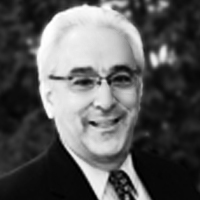Question
What is known at this time about massive doses of beta-carotene in reduction of tinnitus?Answer
For the patient, tinnitus - the name given to any head noise - is a problem. It can fluctuate or be constant. It can be interfering and in some cases, debilitating.
To the medical profession, tinnitus is a symptom. Something is causing the ear(s) to ring (or hum or any other descriptor assigned to it by the patient).
My first recommendation would be to consult your primary care physician (PCP) or ear, nose and throat specialist (ENT), as well as an audiologist, to determine the cause of the tinnitus. Once a cause is established, a treatment plan can be implemented.
Tinnitus relief can occur with the use of hearing aids (if there is a hearing loss associated with the tinnitus), tinnitus 'maskers' (ear-level worn hearing aid-type devices that generate a different sound), Tinnitus Retraining Therapy (TRT), the use of a noise generator at night to help you fall asleep, improved diet and nutrition, acupuncture, hypnosis and the use of non-traditional (herbal) therapies such as zinc or ginkgo biloba.
If a patient chooses to bypass finding the causal relationship or told "you'll just have to live with it," they are free to try any number of "over-the-counter" (OTC) products. Please keep in mind that the FDA does not require the stringent testing for efficacy and safety for OTC 'natural' products as it does with drugs. Therefore, the manufacturer does not have to follow "Good Manufacturing Practice Guidelines" established by the FDA nor do they have to prove to the FDA its effectiveness. However, the contents must be listed on the label and should be accurate in their content percentages. Most of the time you will see two asterisks under the Percent of Daily Requirement column on the label with the note that "no minimal daily requirement has been established." That comment is a red flag.
Keep in mind, if the OTC therapies really worked, it would make front page headlines because millions of persons have tinnitus in one form or another and would greatly benefit from this proven treatment.
I may have just given you more information than you requested, but it lays the foundation to my answer for your question regarding massive doses of beta-carotene in the reduction of tinnitus. Many advertised tinnitus pills claim that one of the active "tinnitus relieving" ingredients is Vitamin A. This is usually provided in the form of beta-carotene. Your body converts beta-carotene into Vitamin A, but only as much as needed.
I consulted with Kathy Campbell, Ph.D., at Southern Illinois University, who is an expert in otoprotective and ototoxic agents. I asked her if she knew anything on the effectiveness of Vitamin A and tinnitus. She stated, "If it worked it should be published.... Vitamin A (which is quite toxic at high levels) doesn't usually appear in the vitamin supplement section."
This is why beta-carotene is used in many supplements as it provides a safe method of providing Vitamin A. Any excess beta-carotene is either stored or excreted by the body. So, even though a person is taking large doses of beta-carotene, they are only getting as much Vitamin A as the body requires. Therefore, the use of "massive amounts" can be really wasteful, as you may be getting plenty of Vitamin A from other sources such as carrots, spinach, lettuce, tomatoes and other yellow, orange and green leafy fruits and vegetables.
I went ahead and performed a literature search on Vitamin A and tinnitus using the PubMed database of peer reviewed research studies (www.pubmed.org). I found several articles on the topic from the 50s and the 60s but there were not any abstracts listed, so I could not read the results. If Vitamin A would have worked back then, it would be common medical practice for treating tinnitus today. I did find one research study out of a German research journal from the early 80s (Brand, H. (1983) that looked at 96 cased of tinnitus treated with vasodilators and Vitamin A. The treatment method was reported as "unsatisfactory".
Remember the articles that I mentioned above are published in scientific, peer reviewed journals. You may see other mentions of "research studies" that show the benefit of various pills or supplements to provide tinnitus relief. If the research (probably conducted by the company who sells the pills) has not been held up to the gold standard of peer review, I would not give these "research studies" much weight.
I would advise persons seeking OTC tinnitus relief to see their PCP first to establish the cause and then implement a treatment plan that includes the services of an audiologist and then wait for the FDA to approve something that really works.
I hope this helps!
Brand, H. (1983). Neural therapy in tinnitus. Wein Med Wochenschr, 133(21). 545-547.
Robert M. DiSogra, AuD., FAAA, is the Director of Audiology Associates of Freehold (NJ) and adjunct faculty member at The School of Audiology at the Pennsylvania College of Optometry where he has taught the Pharmacology/Ototoxicity course.

